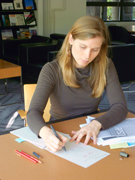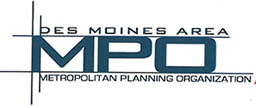Defining sustainability is as hard as “ nailing Jello to a tree.” There are already countless definitions of the word out there.
Around the U.S. and the world, groups define sustainability differently depending on their frame of reference. For instance, the U.S. Environmental Protection Agency’s definition of sustainability is centered on the natural environment:
“Sustainability is based on a simple principle: Everything that we need for our survival and well-being depends, either directly or indirectly, on our natural environment. Sustainability creates and maintains the conditions under which humans and nature can exist in productive harmony, that permit fulfilling the social, economic and other requirements of present and future generations.”
In comparison, the American Planning Association looks at sustainability in relationship to human needs:
“Whether the Earth’s resources will be able to meet the demands of a growing human population that has rising aspirations for consumption and quality of life, while maintaining the rich diversity of the natural environment or biosphere.”
Today, the most common definition of sustainable development comes from the United Nations Brundtland Commission report, Our Common Future, from 1987:
“Humanity has the ability to make development sustainable to ensure that it meets the needs of the present without compromising the ability of future generations to meet their own needs.”
The Bruntland definition is widely used, and is much more general than the EPA and American Planning Association definitions above. The comparison raises a couple of questions.
- How specifically should one define sustainability? Is it important to be as inclusive as possible by using general terms and concepts? Or does generalization defeat the purpose of composing a definition?
- Does the Bruntland Commission definition elevate the needs of humans (“future generations”) over environmental needs?
Though it’s easy to agree that defining sustainability is difficult, it is still critically important. A shared definition of sustainability can help Greater Des Moines come together around a vision for the future, and can also help guide the policies and plans needed to get there.
How should The Tomorrow Plan define sustainability for Greater Des Moines? We have a lot of raw material and ideas that have been gathered from public meetings, through online surveys, and in conversations with leaders and the public, and are crafting a definition now.
What does sustainability mean to you? Add your voice to the comments.
 Hope Stege is an urban planner with experience in community and public-sector work. She currently works at Sasaki Associates and is a member of The Tomorrow Plan’s project team.
Hope Stege is an urban planner with experience in community and public-sector work. She currently works at Sasaki Associates and is a member of The Tomorrow Plan’s project team. 




I like the Brundtland definition of sustainability, but for the purposes of planning for the future, it doesn’t go far enough. The recent financial and housing crisis and dwindling natural resources world-wide perhaps should teach us that a “sustainable” community has to also be a “resilient” community–one that can not only survive over generations, but can also quickly respond and recover when hit by a crisis. A resilient community anticipates the changes it can foresee and plans accordingly. For example, it’s no secret that the price and kinds of energy sources will change dramatically over the next 40 years. Facing this and planning for it provides us an opportunity to use our creativity and cooperation to unleash the genius within our local communities. Facing this fact and other inevitabilities as OPPORTUNITIES, we can build a future less dependent on carbon-based fuels and one that is far more fulfilling and enriching, more connected to the earth, than the life we have today.
Pingback: The Tomorrow Plan Is Not Sustainable
sustainability: A process for meeting human needs that would continue even if there were no central planners to guide things. A process that would sustain itself at the loal level; on a person to person basis and as an overarching set of principles for governance on a broader scale. Fortunately for us, such a sustainable process has been established over the past couple of hundred years; a recognition of individual rights and civil liberties, capitalism which is the right to keep what you have earned and to trade freely, and a limited government instituted by the people for the purpose of protecting those rights and liberties. That is a sustainable system.